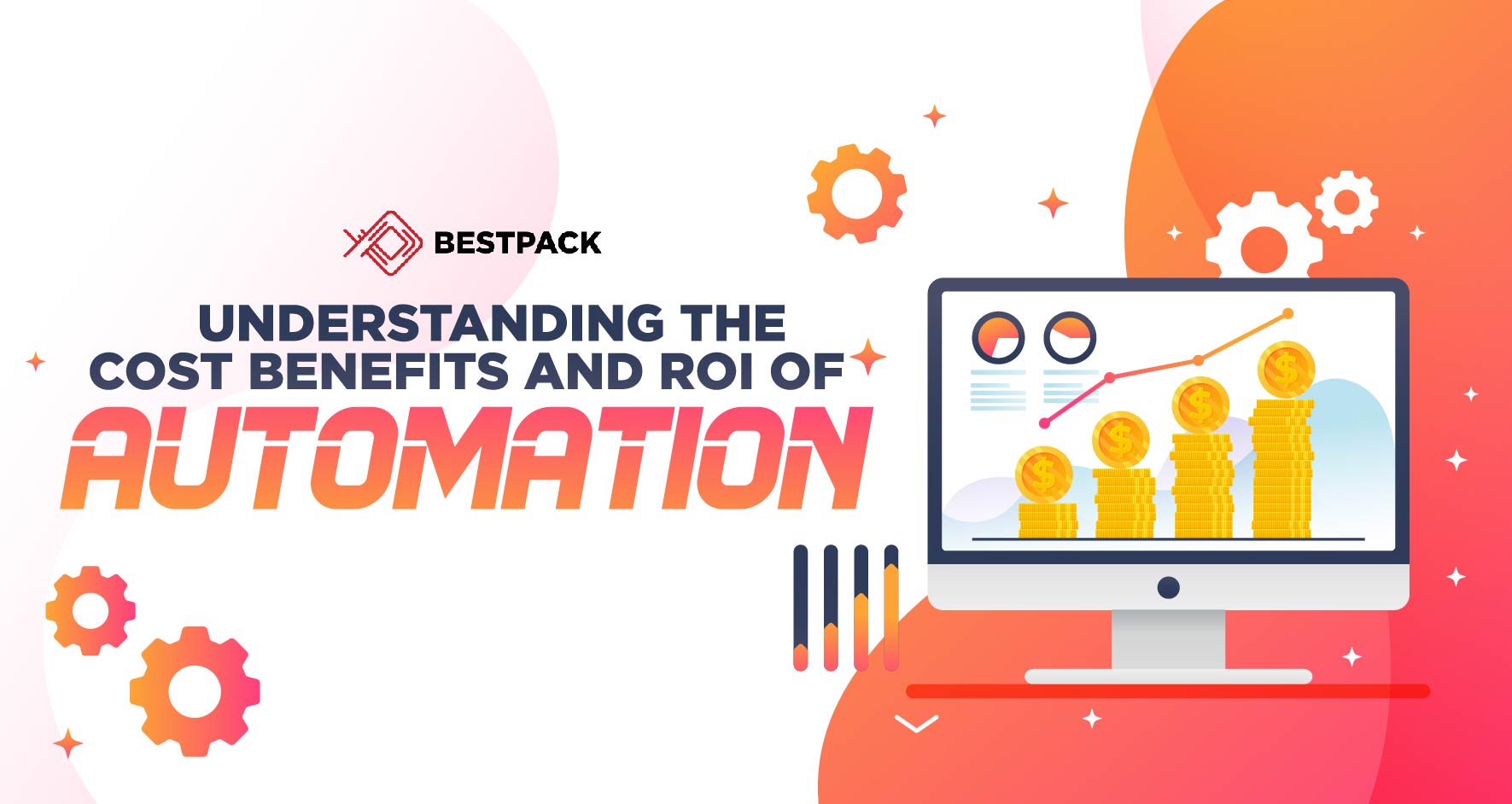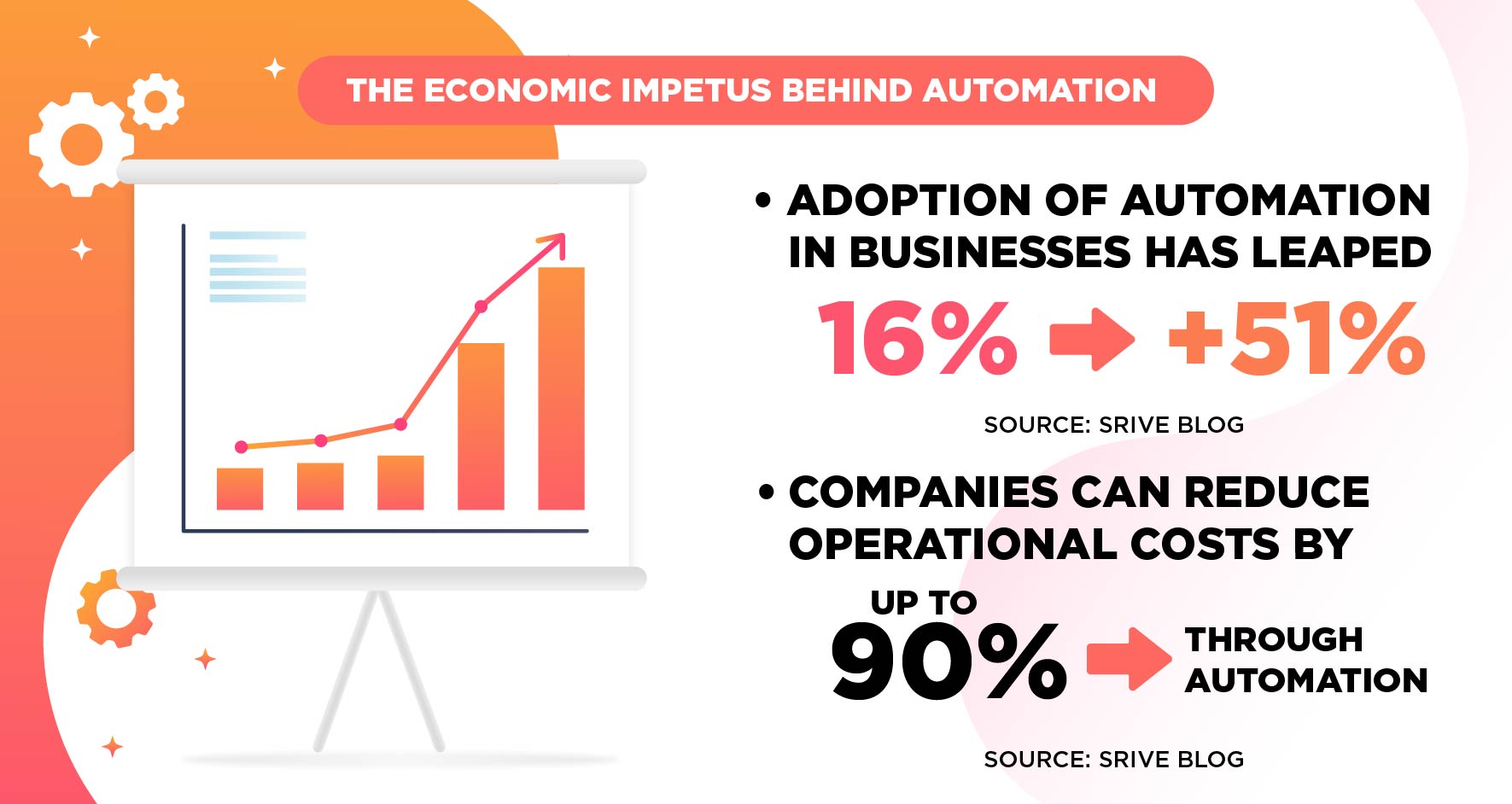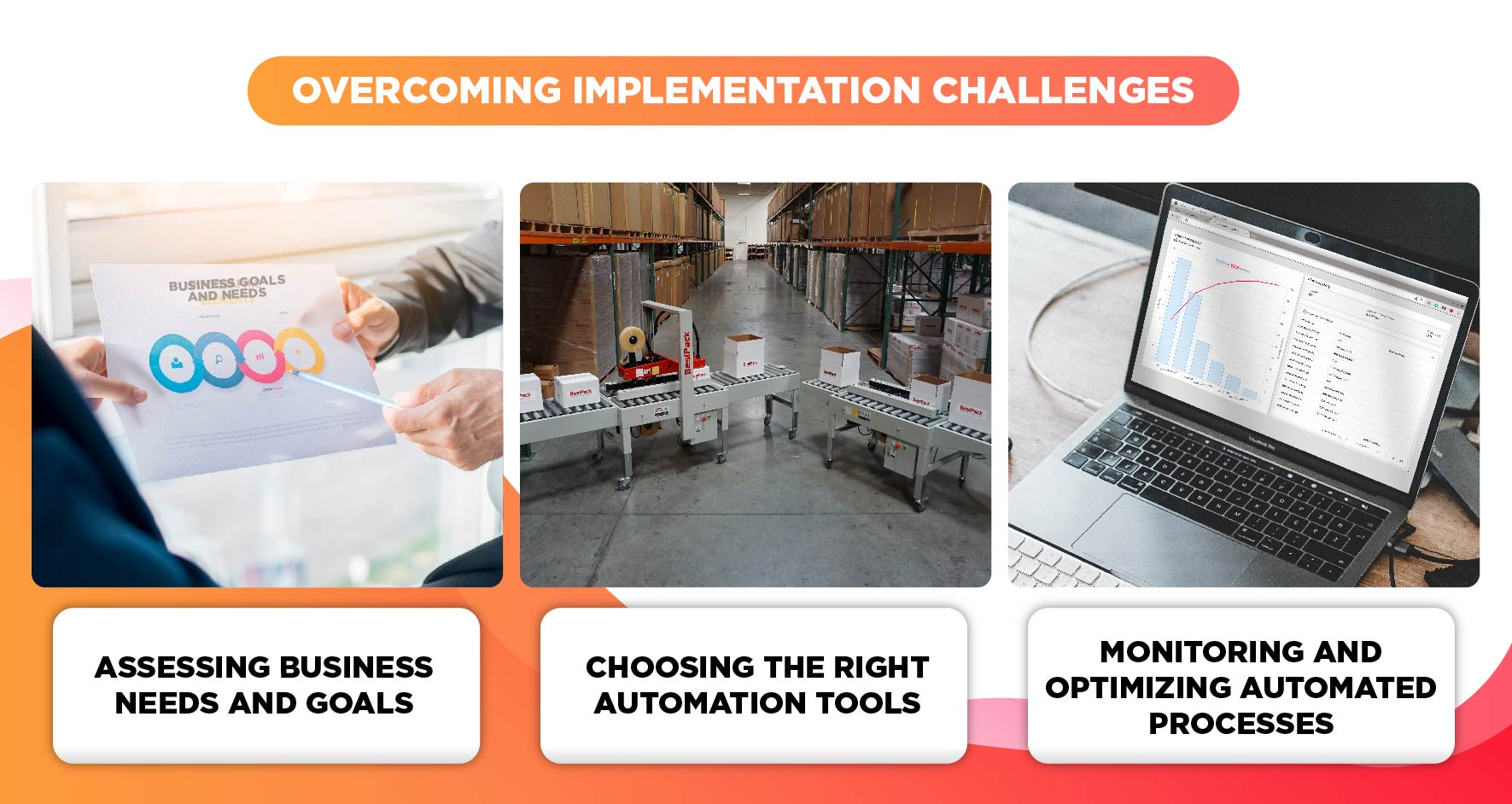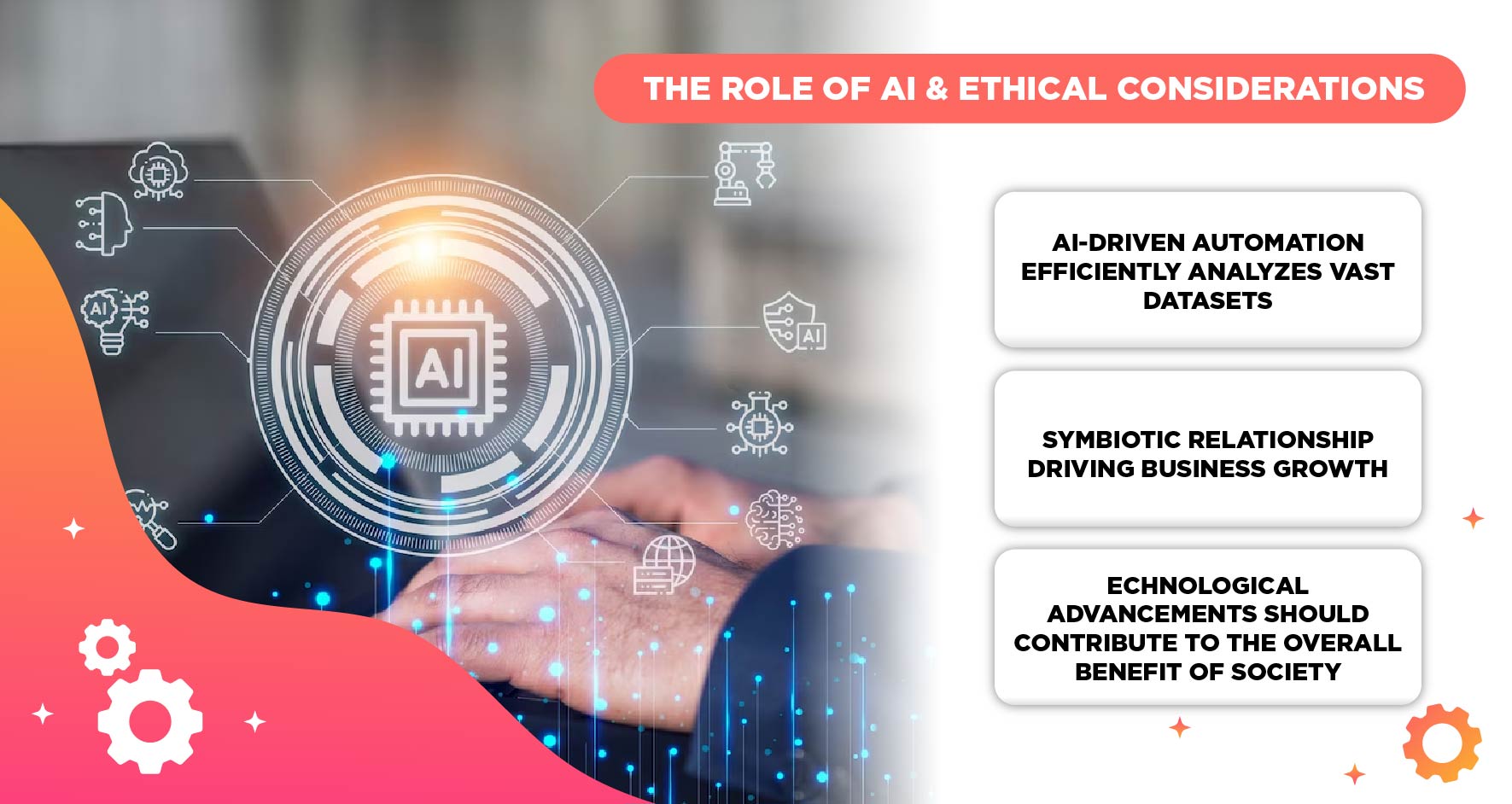
Imagine a world where businesses operate with unprecedented speed and precision; efficiency is not just an objective but a tangible reality, and operational costs are dramatically reduced, not through cuts, but through innovation.
This is the world of automation—a realm where technology transforms challenges into opportunities, making what was once impossible.
In the automation space, companies are not just seeking to adopt new technologies; they aim to redefine their essence to become more agile, resilient, and competitive.
At the heart of this transformation is automation, a powerful tool reshaping how businesses approach everything from manufacturing processes to customer service. The evidence is compelling: adoption rates are soaring, operational costs are plummeting, and the innovation potential is boundless.
But what does this mean for your business? How can you harness the power of automation to survive and thrive in this new era?
A striking statistic from Srive Blog highlights that the adoption of automation in businesses has leaped from 16% to over 51% within a decade, underscoring a swift and defining shift towards digital transformation.
This trend signals the growing reliance on automation technologies and underscores the urgency for companies to adapt to remain competitive.
Further emphasizing automation’s impact, the same source notes that companies can reduce operational costs by up to 90% through automation.
This staggering figure showcases automated processes’ financial efficiency and transformative potential, from logistics and manufacturing to computational tasks.

Beyond cost savings, automation’s influence extends across various facets of business operations.
Workato reveals that 57% of business professionals at enterprise organizations plan to build automation focusing on improving customer experience over the next two years. This intention to leverage automation for customer-centric purposes illustrates the technology’s role in enhancing service quality and responsiveness.
Moreover, the push towards using a single platform for integration and automation needs is becoming increasingly prevalent, with 94% of business professionals prefer a unified system.
This approach mitigates the challenges of managing multiple systems, such as increased costs and complexity, by providing a streamlined solution for building integrations and automation.
The road to automation is fraught with challenges, from the daunting initial investment to the persistent skill gaps. Navigating these challenges requires a careful strategy that includes:

AI’s integration into automation heralds a new frontier in business innovation. It offers enhanced decision-making capabilities and drives customer service excellence.
AI-powered automation can process vast amounts of data to provide insights and forecasts that inform strategic decisions, demonstrating the symbiotic relationship between AI and automation in driving business growth.
As businesses forge ahead, the ethical implications of automation, such as job displacement and the digital divide, demand attention.
Future trends in automation, including the rise of robotic process automation (RPA), the Internet of Things (IoT), and machine learning, also warrant a thoughtful approach to ensuring that technological advancements benefit society as a whole.

Recent tax legislation offers businesses an exceptional chance to capitalize on automation’s benefits. New laws allow companies to immediately deduct 100% of the cost of investments in machinery and equipment rather than spreading the deduction over five years.
This change presents a significant financial advantage for BestPack. Investing in automation solutions, such as new sealing machinery or automated packaging lines, becomes even more attractive financially.
This accelerated tax deduction makes it an ideal time to upgrade your systems, propelling efficiency, innovation, and cost savings.
Let’s illustrate this advantage:

As businesses continue to navigate the complexities of digital transformation, the strategic adoption of automation becomes essential.
The statistics and insights from Srive Blog, Workato, and Paperform collectively paint a picture of a future where automation is not just a technological advantage but a necessity for operational excellence and competitive differentiation.
Automation represents a powerful tool for businesses seeking to enhance efficiency, reduce costs, and remain competitive in a rapidly changing world. And with the new tax legislation letting you offset all your automation expenses, it’s time to take advantage.
By understanding the nuances of automation—from the economic benefits and organizational advantages to the challenges and ethical considerations—companies can strategically leverage this technology to foster growth and innovation.
For leaders in industries like packaging sealing, epitomized by BestPack, automation is a technological upgrade and a strategic imperative for future readiness and success. You may be wondering how your business fits into this picture.
Why not give us a call so we can discuss it? You’ll probably be pleasantly surprised by what we say. Our phone number is (888) 609-5449. Or, if email is more your thing, shoot us an email at sales@bestpack.com.